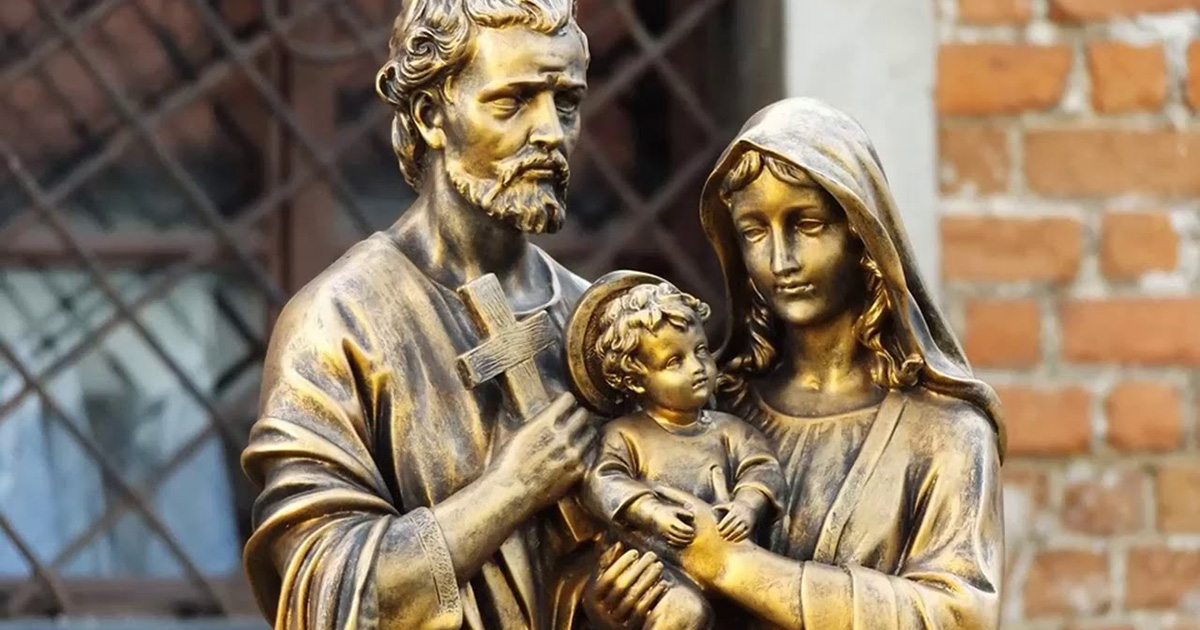“Through his ordinary life, he accomplished something extraordinary in the eyes of God,” the Pope emphasizes, inviting us to reflect on our own ability and responsibility to help others.
Pope Francis’ message for the 58th World Day of Prayer for Vocations to be celebrated on April 25, the fourth Sunday of Easter, was published on March 19.
Entitled “Saint Joseph: the Dream of Vocation,” the message reminds us that the foster father of Jesus is an “extraordinary figure, yet at the same time one so close to our own human experience.”
“He did not do astonishing things, he had no unique charisms, nor did he appear special in the eyes of those who met him. He was not famous or even noteworthy: the Gospels do not report even a single word of his. Still, through his ordinary life, he accomplished something extraordinary in the eyes of God. God looks on the heart, and in Saint Joseph he recognized the heart of a father, able to give and generate life in the midst of daily routines,” the Pope emphasizes in the text.
“The Lord desires to shape the hearts of fathers and mothers: hearts that are open, capable of great initiatives, generous in self-giving, compassionate in comforting anxieties and steadfast in strengthening hopes. The priesthood and the consecrated life greatly need these qualities nowadays, in times marked by fragility but also by the sufferings due to the pandemic, which has spawned uncertainties and fears about the future and the very meaning of life.”
“Saint Joseph comes to meet us in his gentle way, as one of “the saints next door”. At the same time, his strong witness can guide us on the journey,” Francis stressed.
Love gives meaning to life
“Saint Joseph suggests to us three key words for each individual’s vocation,” the Pope tell us. “The first is dream. Everyone dreams of finding fulfilment in life. We rightly nurture great hopes, lofty aspirations that ephemeral goals – like success, money and entertainment – cannot satisfy. If we were to ask people to express in one word their life’s dream, it would not be difficult to imagine the answer: “to be loved”. It is love that gives meaning to life, because it reveals life’s mystery. Indeed, we only have life if we give it; we truly possess it only if we generously give it away. Saint Joseph has much to tell us in this regard, because, through the dreams that God inspired in him, he made of his life a gift.”
According to Francis, “So too in a vocation: God’s call always urges us to take a first step, to give ourselves, to press forward. There can be no faith without risk […]. In this regard, Saint Joseph is an outstanding example of acceptance of God’s plans. […] May he help everyone, especially young people who are discerning, to make God’s dreams for them come true. May he inspire in them the courage to say “yes” to the Lord who always surprises and never disappoints.”
Living to serve
The second word, service, marks the itinerary of St. Joseph and his vocation. According to the Gospels, “Joseph lived entirely for others and never for himself. […] For Saint Joseph, service – as a concrete expression of the gift of self – did not remain simply a high ideal, but became a rule for daily life. […] In short, he adapted to different circumstances with the attitude of those who do not grow discouraged when life does not turn out as they wished; he showed the willingness typical of those who live to serve.”
“In this way, Joseph welcomed life’s frequent and often unexpected journeys: from Nazareth to Bethlehem for the census, then to Egypt and again to Nazareth, and every year to Jerusalem. Each time he was willing to face new circumstances without complaining, ever ready to give a hand to help resolve situations. We could say that this was the outstretched hand of our heavenly Father reaching out to his Son on earth. Joseph cannot fail to be a model for all vocations, called to be the ever-active hands of the Father, outstretched to his children.”
“I like to think, then, of Saint Joseph, the protector of Jesus and of the Church, as the protector of vocations. In fact, from his willingness to serve comes his concern to protect. The Gospel tells us that “Joseph got up, took the child and his mother by night,” thus revealing his prompt concern for the good of his family. […] Such thoughtful concern is the sign of a true vocation, the testimony of a life touched by the love of God,” the Pope points out.
Fidelity is the key to joy
The third aspect that runs through St. Joseph’s life and Christian vocation, guiding his daily life, is fidelity: “How is such fidelity nurtured? In the light of God’s own faithfulness. […] This fidelity is the secret of joy. A hymn in the liturgy speaks of the “transparent joy” present in the home of Nazareth. It the joy of simplicity, the joy experienced daily by those who care for what truly matters: faithful closeness to God and to our neighbour.”
“How good it would be if the same atmosphere, simple and radiant, sober and hopeful, were to pervade our seminaries, religious houses and presbyteries!,” stresses Francis, wishing this joy to all those who have made “the dream of your lives, serving him in your brothers and sisters through a fidelity that is a powerful testimony in an age of ephemeral choices and emotions that bring no lasting joy. May Saint Joseph, protector of vocations, accompany you with his fatherly heart!”
Source: Adapted from Vatican News — http://ssvpbrasil.org.br/








0 Comments